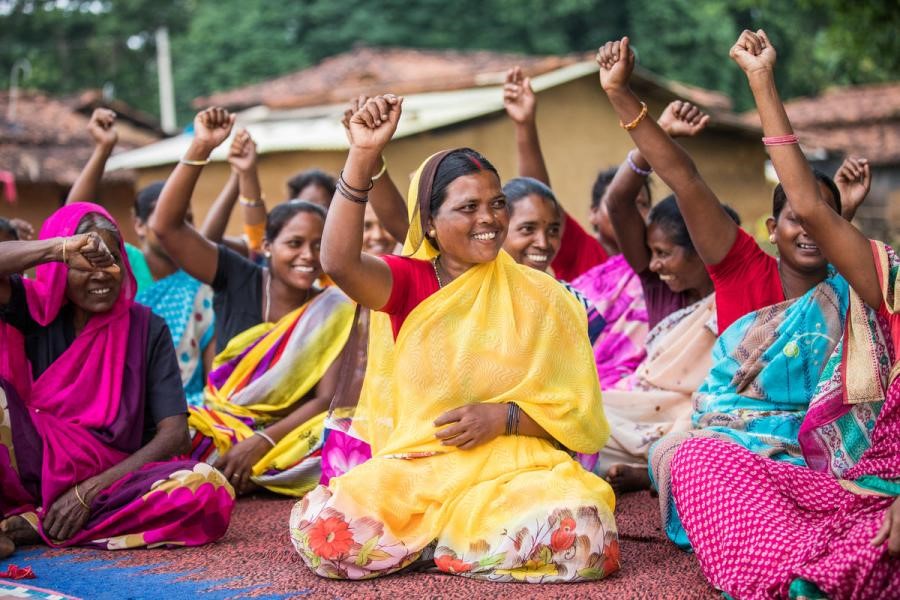
In TN local bodies, elected women leaders are just proxies; their husbands run the show
Many women councillors in the state have become mere proxy figures for their husbands; the practice is rampant, but the state government seems powerless to put a stop to it

The Hindi OTT series Panchayat describes the rural body in a tiny village in Uttar Pradesh headed by a female Pradhan, but only on paper. In practice, the administration is run by her husband, revered by the villagers as ‘Pradhan-Pati’, who occupies her chair, hoists the national flag, and makes key decisions.
Turns out, the practice is rather rampant in far away Tamil Nadu, too.
The Tamil Nadu government may have provided for the critical 50 per cent reservation for women in both urban and rural local bodies. But, six years later, the political empowerment of women seems a distant dream as male family members of the women representatives have usurped their power and taken over their work. The state government, moreover, is little to curtail or stop this practice.
Cities are no different
This is the situation not just at the village level, which was brought out into the open at the recently held Grama Shabha meetings. A similar state of affairs prevails in cities as well, as the zonal level meetings of the city municipal corporation in several cities showed that many women councillors in the state have become mere proxy figures for their husbands.
Admitting this trend is “rampant and uncontrolled”, an IAS office in TN’s western region said: “Be it the urban local body or rural local body, even if we explicitly know that a particular ward or a village panchayat is being run by the husband of an elected woman, we cannot take action since they will be affiliated to one of the main political parties.”
Though women representatives becoming their husband’s proxy is not new, activists feel that it has gained ground in recent times, especially after the local body elections, which were held after a gap of five years.
Greater, wider powers
“It is not new but it has touched a new high and that is a matter of concern,” S Louduraj, an activist campaigning for bettering grassroot-level governance, told The Federal. “Earlier, husbands used to handle the elected woman’s work outside the panchayat or the council office. Now, they are going to the extent of sitting in the office and even attending the government meeting,”
It may be worthy to recall that in February 20, 2016, when AIADMK supremo J Jayalalithaa was the Chief Minister, the TN Assembly introduced two Bills and made necessary amendments to the Tamil Nadu Panchayat Act, 1994 and City Municipal Corporation Acts, increasing the reservation for women in urban and rural local bodies from 33 per cent to 50 per cent.
TN, the 17th state at that time to bring in legislation to provide for 50 per cent reservation for women in local bodies, was hailed for its move.
Also read: Revealed: 435 TN villages still practise caste discrimination; state turns blind eye
After coming to power in the state, the DMK allotted mayor posts to women in 11 out of the 21 City Municipal Corporations (CMCs), giving a fillip to women with political aspirations. The positive impact of increasing the reservation for women in local body elections was also felt during the campaign period.
Calling the shots
However, after the elections, the husbands and other male relatives of the elected women seem to taken over the power.
According to Mehrunisa, state coordinator of the Tamil Nadu Science Forum’s equality committee, in Mettupalayam municipality in Coimbatore district, out of 45 ward members from the city council whom they had called, only two women attended. In the case of the remaining 43 women representatives, their husbands or other male relatives took their calls.
“It is just a sample size and the scenario is more or less the same across the state. Apart from creating awareness among the women representatives, the state government must take stringent action against the male relatives who interfere in their work,” said Mehrunisa.
Promised action
After several such complaints were raised in the Chennai Greater Corporation, Chennai mayor R Priya said that the DMK high command will take action against the relatives of women councilors, including their husbands, for usurping their powers.
The Municipal Administration and Water Supply Department also recently sent out a circular banning the relatives of women councillors from attending the standing committee meeting and zonal committee meetings of the Chennai Greater Corporation.
After the announcement, CPM state secretary K Balakrishnan welcomed the move and sought strict instructions to be given to both urban and rural local bodies to not entertain the interference of non-elected members in the work of elected women representatives.
A senior IAS officer, who preferred to remain anonymous, told The Federal that they were taking all measures to control the interference of non-elected members. “Most of the time, we don’t know how the senior politicians will react if we take action. Even to take a small action, we have to go through a long process carefully. If not, the government official gets rapped by the politicians,” the official said, adding that this serves as a stumbling block to curb this practice.

